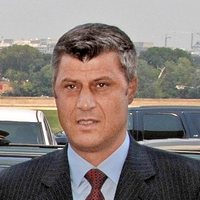PRISTINA, Kosovo -- Tensions ran high in the Balkans on the day, two years ago, that the people of Kosovo announced their momentous decision: "From today onwards," Prime Minister Hashim Thaci solemnly declared on Feb. 17, 2008, "Kosovo is proud, independent and free." The streets of Pristina erupted in celebration at the news that Kosovo's long-awaited independence from Serbia had finally arrived. At the time, however, many predicted yet another Balkan war.
More than two years later, Kosovo has defied the prophecies of the pessimists who believed armed conflict would inevitably break out again if Kosovo dared to declare independence. The fledgling republic remains plagued by serious social, political and economic problems. War, however, is not one of them. To that extent, the effort to protect and develop -- to create, even -- the new Kosovo looks like a qualified success story for the international community.
Today, Pristina's bustling Mother Teresa Boulevard and the multitude of busy cafés lining the capital's streets stand squarely at odds with the predictions of many experts in advance of independence. When the Kosovar parliament was preparing to officially break free of Serbia, those experts spoke darkly of "fears [of] a new humanitarian crisis, destabilizing Europe's most volatile regions, and provoking another Balkans war." At the time, some nine years had already passed since NATO-led forces pushed out the Serbian forces of Slobodan Milosevic, nine years during which Western forces helped to gradually make the aspirations of the oppressed Kosovar Albanians -- the secular Muslims who make up about 90 percent of Kosovo -- a reality.

